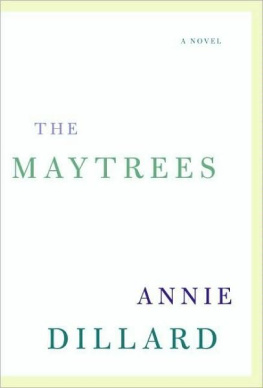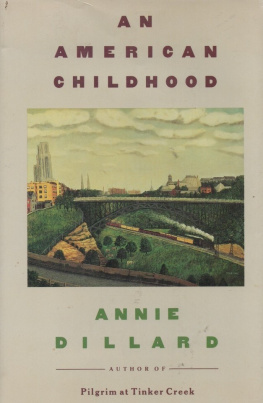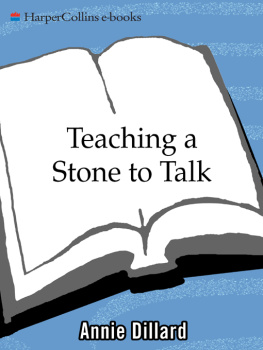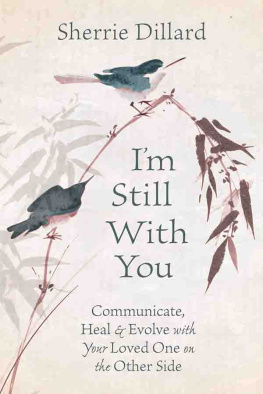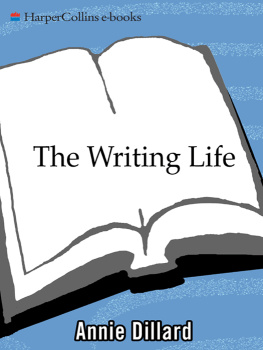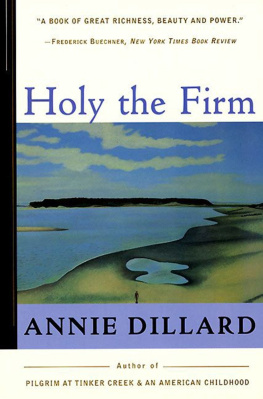Dillard - The writing life
Here you can read online Dillard - The writing life full text of the book (entire story) in english for free. Download pdf and epub, get meaning, cover and reviews about this ebook. City: New York, year: 1989, publisher: Harper & Row, genre: Detective and thriller. Description of the work, (preface) as well as reviews are available. Best literature library LitArk.com created for fans of good reading and offers a wide selection of genres:
Romance novel
Science fiction
Adventure
Detective
Science
History
Home and family
Prose
Art
Politics
Computer
Non-fiction
Religion
Business
Children
Humor
Choose a favorite category and find really read worthwhile books. Enjoy immersion in the world of imagination, feel the emotions of the characters or learn something new for yourself, make an fascinating discovery.

- Book:The writing life
- Author:
- Publisher:Harper & Row
- Genre:
- Year:1989
- City:New York
- Rating:3 / 5
- Favourites:Add to favourites
- Your mark:
- 60
- 1
- 2
- 3
- 4
- 5
The writing life: summary, description and annotation
We offer to read an annotation, description, summary or preface (depends on what the author of the book "The writing life" wrote himself). If you haven't found the necessary information about the book — write in the comments, we will try to find it.
Abstract: Dillard describes the working life of a writer. She probes and exposes, examines and analyzes, as she recounts what the actual process of writing feels like
Dillard: author's other books
Who wrote The writing life? Find out the surname, the name of the author of the book and a list of all author's works by series.
The writing life — read online for free the complete book (whole text) full work
Below is the text of the book, divided by pages. System saving the place of the last page read, allows you to conveniently read the book "The writing life" online for free, without having to search again every time where you left off. Put a bookmark, and you can go to the page where you finished reading at any time.
Font size:
Interval:
Bookmark:


For
BOB
No one suspects the days to be gods .
EMERSON
WHEN YOU WRITE, you lay out a line of words.
I WRITE THIS in the most recent of my many
ONCE, in order to finish a book I was writing
WHAT IS THIS WRITING LIFE? I was living alone in
PEOPLE LOVE PRETTY MUCH the same things best. A writer
THAT ISLAND on Haro Strait haunts me. The few people
DAVE RAHM lived in Bellingham, Washington, north of Seattle. Bellingham,
Do not hurry; do not rest .
GOETHE
W HEN YOU WRITE , you lay out a line of words. The line of words is a miners pick, a woodcarvers gouge, a surgeons probe. You wield it, and it digs a path you follow. Soon you find yourself deep in new territory. Is it a dead end, or have you located the real subject? You will know tomorrow, or this time next year.
You make the path boldly and follow it fearfully. You go where the path leads. At the end of the path, you find a box canyon. You hammer out reports, dispatch bulletins.
The writing has changed, in your hands, and in a twinkling, from an expression of your notions to an epistemological tool. The new place interests you because it is not clear. You attend. In your humility, you lay down the words carefully, watching all the angles. Now the earlier writing looks soft and careless. Process is nothing; erase your tracks. The path is not the work. I hope your tracks have grown over; I hope birds ate the crumbs; I hope you will toss it all and not look back.
The line of words is a hammer. You hammer against the walls of your house. You tap the walls, lightly, everywhere. After giving many years attention to these things, you know what to listen for. Some of the walls are bearing walls; they have to stay, or everything will fall down. Other walls can go with impunity; you can hear the difference. Unfortunately, it is often a bearing wall that has to go. It cannot be helped. There is only one solution, which appalls you, but there it is. Knock it out. Duck.
Courage utterly opposes the bold hope that this is such fine stuff the work needs it, or the world. Courage, exhausted, stands on bare reality: this writing weakens the work. You must demolish the work and start over. You can save some of the sentences, like bricks. It will be a miracle if you can save some of the paragraphs, no matter how excellent in themselves or hard-won. You can waste a year worrying about it, or you can get it over with now. (Are you a woman, or a mouse?)
The part you must jettison is not only the best-written part; it is also, oddly, that part which was to have been the very point. It is the original key passage, the passage on which the rest was to hang, and from which you yourself drew the courage to begin. Henry James knew it well, and said it best. In his preface to The Spoils of Poynton , he pities the writer, in a comical pair of sentences that rises to a howl: Which is the work in which he hasnt surrendered, under dire difficulty, the best thing he meant to have kept? In which indeed, before the dreadful done , doesnt he ask himself what has become of the thing all for the sweet sake of which it was to proceed to that extremity?
So it is that a writer writes many books. In each book, he intended several urgent and vivid points, many of which he sacrificed as the books form hardened. The youth gets together his materials to build a bridge to the moon, Thoreau noted mournfully, or perchance a palace or temple on the earth, and at length the middle-aged man concludes to build a wood-shed with them. The writer returns to these materials, these passionate subjects, as to unfinished business, for they are his lifes work.
It is the beginning of a work that the writer throws away.
A painting covers its tracks. Painters work from the ground up. The latest version of a painting overlays earlier versions, and obliterates them. Writers, on the other hand, work from left to right. The discardable chapters are on the left. The latest version of a literary work begins somewhere in the works middle, and hardens toward the end. The earlier version remains lumpishly on the left; the works beginning greets the reader with the wrong hand. In those early pages and chapters anyone may find bold leaps to nowhere, read the brave beginnings of dropped themes, hear a tone since abandoned, discover blind alleys, track red herrings, and laboriously learn a setting now false.
Several delusions weaken the writers resolve to throw away work. If he has read his pages too often, those pages will have a necessary quality, the ring of the inevitable, like poetry known by heart; they will perfectly answer their own familiar rhythms. He will retain them. He may retain those pages if they possess some virtues, such as power in themselves, though they lack the cardinal virtue, which is pertinence to, and unity with, the books thrust. Sometimes the writer leaves his early chapters in place from gratitude; he cannot contemplate them or read them without feeling again the blessed relief that exalted him when the words first appearedrelief that he was writing anything at all. That beginning served to get him where he was going, after all; surely the reader needs it, too, as groundwork. But no.
Every year the aspiring photographer brought a stack of his best prints to an old, honored photographer, seeking his judgment. Every year the old man studied the prints and painstakingly ordered them into two piles, bad and good. Every year the old man moved a certain landscape print into the bad stack. At length he turned to the young man: You submit this same landscape every year, and every year I put it on the bad stack. Why do you like it so much? The young photographer said, Because I had to climb a mountain to get it.
A cabdriver sang his songs to me, in New York. Some we sang together. He had turned the meter off; he drove around midtown, singing. One long song he sang twice; it was the only dull one. I said, You already sang that one; lets sing something else. And he said, You dont know how long it took me to get that one together.
How many books do we read from which the writer lacked courage to tie off the umbilical cord? How many gifts do we open from which the writer neglected to remove the price tag? Is it pertinent, is it courteous, for us to learn what it cost the writer personally?
You write it all, discovering it at the end of the line of words. The line of words is a fiber optic, flexible as wire; it illumines the path just before its fragile tip. You probe with it, delicate as a worm.
Few sights are so absurd as that of an inchworm leading its dimwit life. Inchworms are the caterpillar larvae of several moths or butterflies. The cabbage looper, for example, is an inchworm. I often see an inchworm: it is a skinny bright green thing, pale and thin as a vein, an inch long, and apparently totally unfit for life in this world. It wears out its days in constant panic.
Every inchworm I have seen was stuck in long grasses. The wretched inchworm hangs from the side of a grassblade and throws its head around from side to side, seeming to wail. What! No further? Its back pair of nubby feet clasps the grass stem; its front three pairs of nubs rear back and flail in the air, apparently in search of a footing. What! No further? What? It searches everywhere in the wide world for the rest of the grass, which is right under its nose. By dumb luck it touches the grass. Its front legs hang on; it lifts and buckles its green inch, and places its hind legs just behind its front legs. Its body makes a loop, a bight. All it has to do now is slide its front legs up the grass stem. Instead it gets lost. It throws up its head and front legs, flings its upper body out into the void, and panics again. What! No further? End of world? And so forth, until it actually reaches the grassheads tip. By then its wee weight may be bending the grass toward some other grass plant. Its davening, apocalyptic prayers sway the grasshead and bump it into something. I have seen it many times. The blind and frantic numbskull makes it off one grassblade and onto another one, which it will climb in virtual hysteria for several hours. Every step brings it to the universes rim. And nowWhat! No further? End of world? Ah, heres ground. What! No further? Yike!
Font size:
Interval:
Bookmark:
Similar books «The writing life»
Look at similar books to The writing life. We have selected literature similar in name and meaning in the hope of providing readers with more options to find new, interesting, not yet read works.
Discussion, reviews of the book The writing life and just readers' own opinions. Leave your comments, write what you think about the work, its meaning or the main characters. Specify what exactly you liked and what you didn't like, and why you think so.


